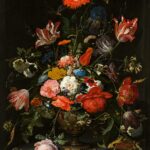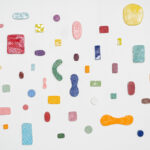I have loved books ever since I memorized Dr. Seuss’ “Mr. Brown Can Moo, Can You?” at age two and fell in love with “Itchy Itchy Chicken Pox” and “Chicka Chicka Boom Boom” at age five. I loved the rhythm of the words placed next to each other, how they sounded and felt coming out of my mouth and body. I loved the whimsy words strung together could create. I loved how people listened when I read those words. I loved getting to share.
My love for reading persisted through Babysitter’s Club and Sweet Valley High books, “Island of the Blue Dolphins” in elementary school and “Where the Red Fern Grows” in fifth grade, the first book that ever made me cry. I read “Stargirl.” “Flipped.” “The Giver” in middle school, showed me how to navigate the world, went through a Meg Cabot and Sarah Dessen phase — oh, gosh — in high school.
I went to college and studied English, was introduced to feminist and Marxist and postcolonial theories, tools with which to look at who has power and why within texts, found international literature and poetry, and wrote some, too. I went to Greece where Annie Dillard’s “Pilgrim at Tinker Creek” accompanied me throughout airports and European countries all year, a companion that became a dogeared, waterwhipped journal I wrote all along the margins of. I went to graduate school, and literature of the American West found me, Cather and Hong Kingston and Marmon Silko, right when I needed them, alongside Austen and Gissing and Flaubert. They taught me and formed me and helped me come home.
Then there was a reading drought. Until the past couple of years, when I’ve discovered reading again for the fun of it, the magic of Jonathan Safran Foer’s imagination, the possibility of Masanobu Fukuoka’s methods of farming, the philosophy of Paulo Coehlo’s seeking. I can read whenever and whatever I want, for no other purpose than because I want to. And that feels again like being a child.
My bookshelf is a sacred place in my home, because it is the culmination of the things I know. The words and writers who have shaped the way I think about myself, others and the world all sit there together in rows, a unique combination of thoughts and thinkers no one else in the world shares. This is what I know. This is what has shaped me.
Here is a little bit about a book that forever shifted the way I view myself and the world around me:
“The Namesake”
By Jhumpa Lahiri
On a sticky August evening two weeks before her due date, Ashima Ganguli stands in the kitchen of a Central Square apartment, combining Rice Krispies and Planters peanuts and chopped red onion in a bowl. She adds salt, lemon juice, thin slices of green chili pepper, wishing there were mustard oil to pour into the mix. … Tasting from a cupped palm, she frowns; as usual, there’s something missing. … Her swollen feet ache against speckled gray linoleum. Her pelvis aches from the baby’s weight.
I started reading this book because the opening scene captivated me: It describes a woman who is pregnant making food in her kitchen. Lahiri’s writing is slow, quiet. I love it. I had never read a scene like this before that pays attention to the traditionally-female tasks of cooking and growing a child inside of one’s body, and it was one of those moments that gave me permission and validation: Yes, your experience and the experience of the women you know matters. It is important. Write about it.

